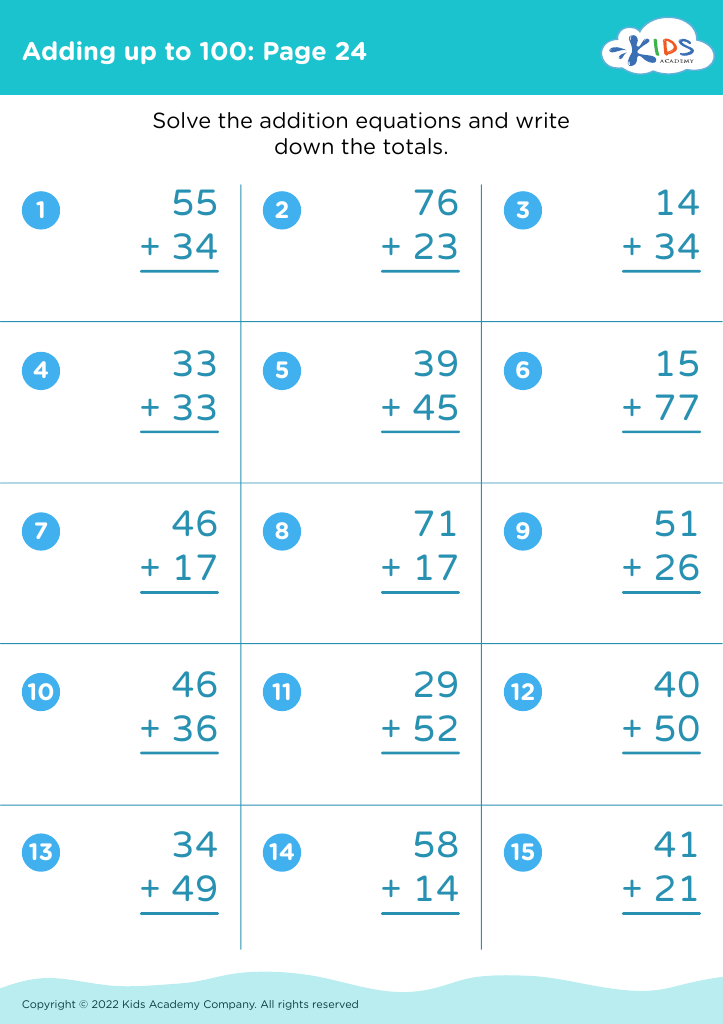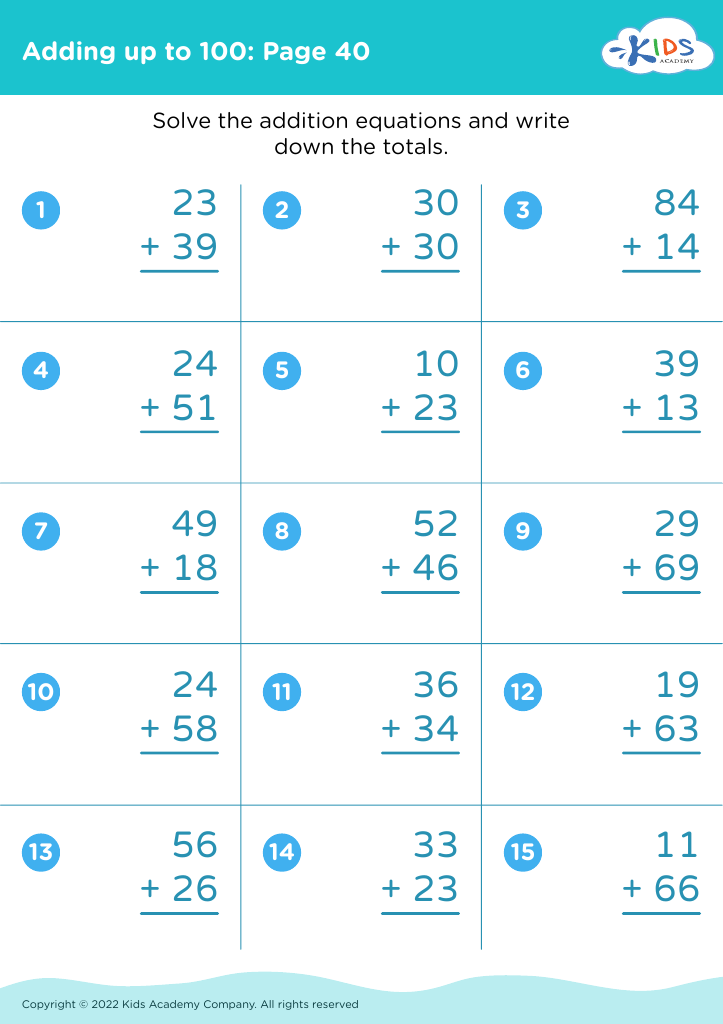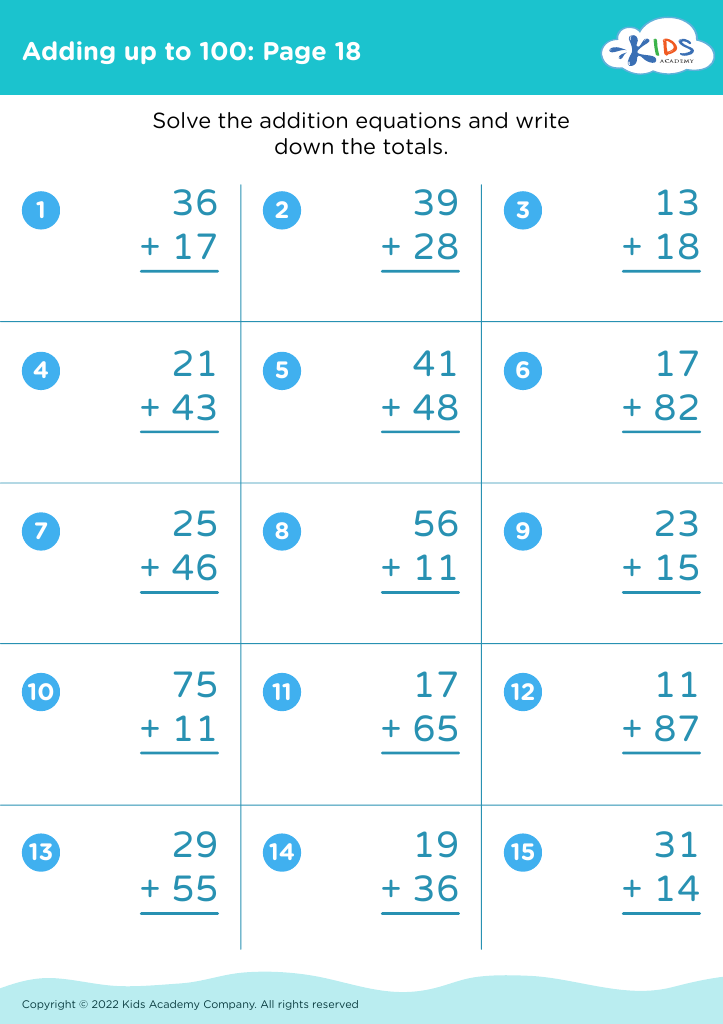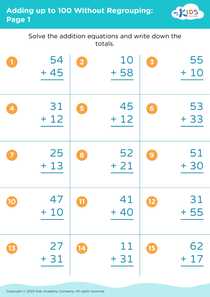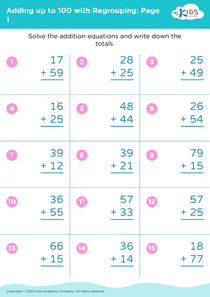Develop fine motor skills Grade 2 Adding up to 100 Misc Worksheets
4 filtered results
-
From - To
Enhance your second grader's fine motor skills with our engaging "Adding Up to 100 Misc Worksheets". Specifically designed for Grade 2 students, these printable worksheets integrate math practice with activities that promote hand coordination and dexterity. Each worksheet features colorful illustrations and interactive tasks, such as tracing numbers and completing puzzles, making math fun and enjoyable. By working on these worksheets, children will not only improve their addition skills but also develop essential fine motor abilities needed for writing and daily tasks. Explore our collections now and give your child a head start in both math and motor skill development!
Developing fine motor skills is crucial for second graders, particularly as they learn foundational math concepts like adding up to 100. Fine motor skills enable students to perform tasks that require hand-eye coordination, dexterity, and precision, which are essential for writing, manipulating math tools, and engaging with various learning materials. When children can control their fingers and hands effectively, they feel more confident in their problem-solving abilities in math.
As students practice adding up to 100, precision in writing numbers, aligning columns, and creating charts or diagrams can significantly affect their understanding and performance. Fine motor skills enhance the ability to grasp math concepts effectively—children who struggle with these skills may find math frustrating and error-prone, which can lead to a lack of confidence and motivation.
Parents and teachers investing time in activities that promote fine motor skills—like arts and crafts, building with blocks, or using games and tools designed for grasping—can create a supportive environment where children thrive both academically and personally. Developing these skills can contribute to lifelong learning habits, improve academic performance in various subjects, and help establish the motor competencies necessary for future personal and professional tasks.
